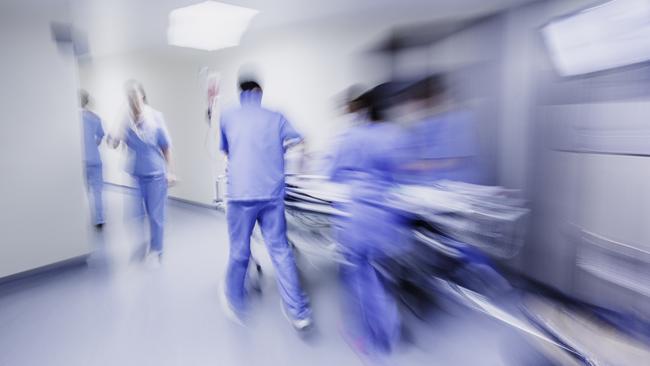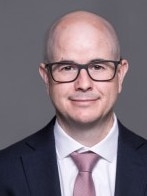
David Di Pilla and health insurance fund Bupa are believed to be working as part of a consortium to gain control of Healthscope, the country’s second largest private hospital operator.
The attempts by Mr Di Pilla, who runs HMC Capital, comes as Healthscope’s future hangs in the balance, with rising debt and operating costs and a critical March deadline looming where the healthcare provider is likely to breach debt covenants on loans worth about $1.6bn.
Bupa does not operate hospitals in Australia, but operates 20 hospitals across Spain, Chile, Poland and the United Kingdom.
Healthscope, meanwhile, operates 38 hospitals, including the Knox Private Hospital, Nepean Private Hospital, Northpark Private Hospital and Sydney Southwest Hospital, among others, and mental health facilities.
It declined to comment on the speculation, as did HMC Capital and Bupa.
Sources say a former Ramsay Health Care executive is also involved as a consultant on the potential takeover.
Bain Capital has also been weighing a move on Healthscope, although it’s unclear if it is in Mr Di Pilla’s camp.
The market talk comes as health insurer Bupa last month reached an agreement with Healthscope on new contracts, ending a stand-off on payment terms which lasted several months.
Healthscope in October proposed a fee to help bridge the gap between what it said was chronic underfunding from these insurers and the rising costs of providing high quality care.
Bupa has 4.1 million health insurance members, and Healthscope has been in talks with the insurer as well as applying pressure on landlords and the government for support.
The prospect of a Healthscope collapse would be something the federal government would be keen to avoid in the build up to a federal election, and would be pushing for the industry to find a solution for the embattled healthcare provider amid a cost of living crisis.
Brookfield purchased Healthscope for $4.4bn in 2019, fending off competition from BGH Capital.

The North American private equity firm then sold Healthscope’s hospitals to Medical Properties and Northwest Healthcare Properties for about $2bn.
Medical Properties on-sold its 11 hospitals to David Di Pilla’s HMC Capital for its listed healthcare real estate investment trust in a $1.2bn deal announced in March 2023.
HMC Capital’s purchase was made by the HMC-managed Healthco, in conjunction with a newly established HMC-managed unlisted fund, which has debt.
It cut a deal on rents with Healthscope: they would be reduced for two years in exchange for higher increases over the longer term.
At the time of the deal, rent was increasing annually at 2.5 per cent, but in return for a reduction, future rents will increase by 4 per cent or more if inflation is more than that level.
NorthWest owns the other half of the Healthscope real estate portfolio, and receives 2.5 per cent increases in rent annually.
The share price of Healthco has fallen to 96c from over $2 when it first listed in 2020 and its market value is currently $536.8m.
It raised equity for the Healthscope hospitals purchase at $1.35 per share.
Its last results showed it had $478m of borrowings.
There had earlier been speculation that Mr Pilla’s HMC interests had held talks with not-for-profit hospital operator St John of God Health Care.
Brookfield is understood to take the view there is no longer any equity left in Healthscope, which is not in default and is not believed to have breached any covenants.
If Healthscope breaches its debt covenant in March, as expected, it will free its syndicate of 25 lenders to offload loans — should they wish — at a discounted price.
But, some suggest the lenders, which include Australia’s top four banks, could sell early.
One option is for Mr Di Pilla and his backers to buy Healthscope’s debt from lenders at a discount.
Or, savvy investors could offer to cut Healthscope’s rents in exchange for equity in another possible scenario.






To join the conversation, please log in. Don't have an account? Register
Join the conversation, you are commenting as Logout